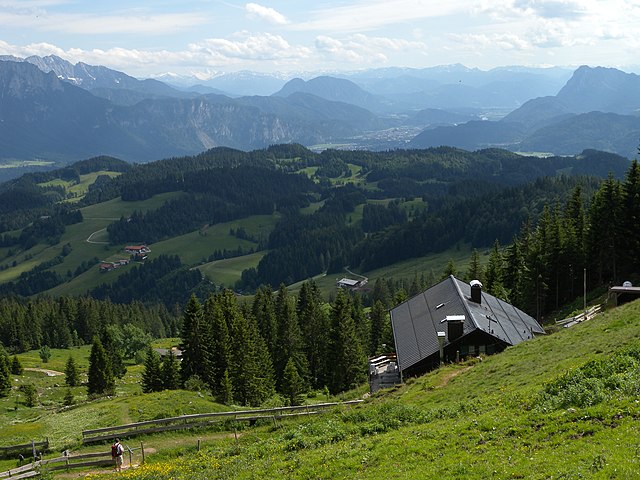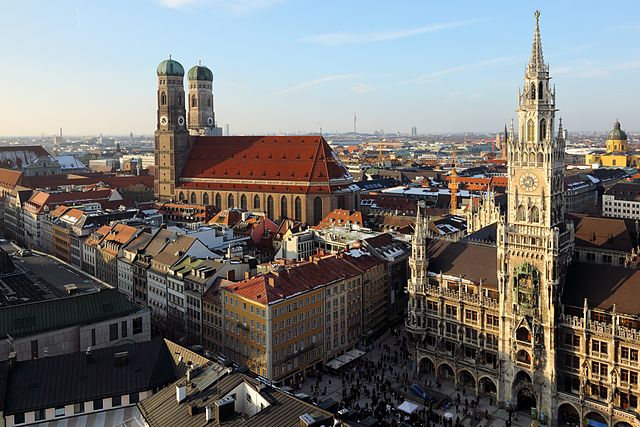The Bavarian Soviet Republic, also known as the Munich Soviet Republic, was a short-lived unrecognised socialist state in Bavaria during the German Revolution of 1918–1919. It took the form of a workers' council republic. Its name is also sometimes rendered in English as the Bavarian Council Republic; the German term Räterepublik means a republic of councils or committees, and council or committee is also the meaning of the Russian word soviet. It was established in April 1919 after the demise of Kurt Eisner's government and sought to establish a socialist republic in Bavaria. It was overthrown less than a month later by elements of the German Army and the paramilitary Freikorps. Several individuals involved in its overthrow later joined the Nazi Party, even though Adolf Hitler himself had been, at least publicly, a supporter of the Bavarian Soviet Republic.
Ernst Toller, circa 1923
Eugen Leviné
Bavaria, officially the Free State of Bavaria, is a state in the southeast of Germany. With an area of 70,550.19 km2 (27,239.58 sq mi), it is the largest German state by land area, comprising roughly a fifth of the total land area of Germany. With over 13 million inhabitants, it is the second most populous German state behind North Rhine-Westphalia, but due to its large physical size its population density is below the German average. Major cities include Munich, Nuremberg, and Augsburg.
A memorial to soldiers who died in World War I and World War II in Kröning, Bavaria
The Bavarian Alps (foreground) and Tyrol in Austria (background), including the Inn valley (center), Kaisergebirge (left), Pendling (right), and the snow-capped High Tauern (center left)
Munich with Frauenkirche (left) and Rathaus, Munich's town hall
The Bavarian State Chancellery in Munich






